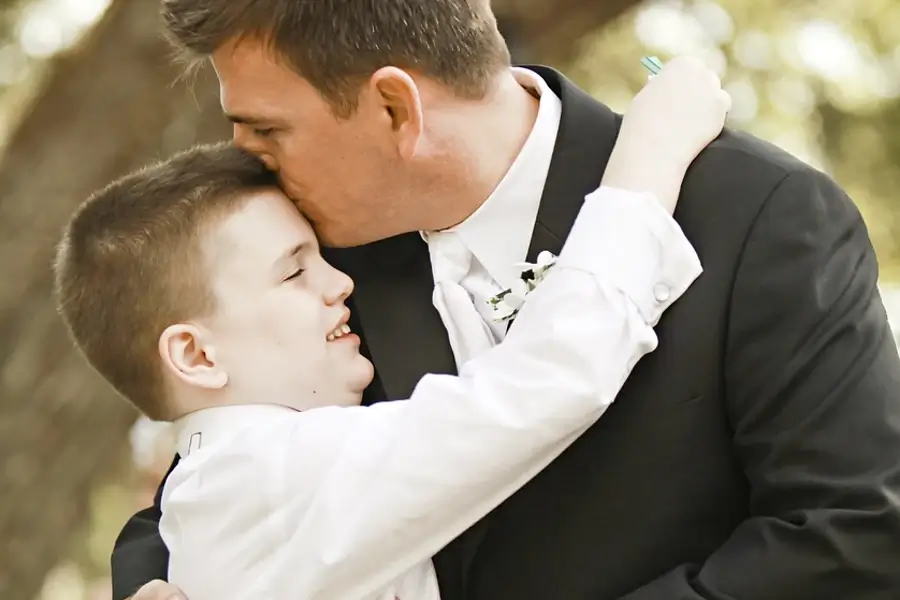Autism Spectrum Disorder (ASD) is a neurodevelopmental disease that impacts an individual’s perception and social interaction abilities.
Difficulties in social communication, social engagement, and repetitive habits or restricted interests distinguish it. Here is a more comprehensive examination of Autism Spectrum Disorder (ASD) in children:
Indications and Manifestations:
Societal communication and interaction:
- Challenges in engaging in social interactions and establishing friendships.
- Difficulties associated with nonverbal communication include maintaining eye contact and interpreting facial expressions.
- Difficulties in comprehending and reacting to social cues.
- Challenges in alternating or distributing something fairly.
Repetitive Behaviors or Restricted Interests:
- Repetitive actions such as hand flapping and rocking.
- Concentration on particular subjects or tasks with great intensity.
- Challenges in adapting to alterations in routines or timetables.
- Narrow or obsessive preoccupations.
The child’s behavior, growth, and communication skills will be assessed.
Scale of Severity:
Autism Spectrum Disorder (ASD) has a range of manifestations, indicating that the intensity and specific difficulties might significantly differ among individual children. Certain children with Autism Spectrum Disorder (ASD) may encounter substantial difficulties across all domains. In contrast, others may experience more pronounced struggles in specific areas.
Initial Indications:
Timely identification and proactive intervention are crucial in assisting children with Autism Spectrum Disorder (ASD). Below are a few possible initial indicators to observe:
- By 12 months, the child does not engage in babbling or pointing.
- By 16 months, the individual does not utilize single words.
- Does not exhibit the ability to employ two-word phrases by the age of 2.
- Experiences a decline in previously gained language or social abilities
- Does not make direct visual contact.
- Displays a preference for alone play.
- Experiences challenges in articulating desires or requirements.
Medical assessment:
There is no singular diagnostic test for Autism Spectrum Disorder (ASD). The diagnosis is usually established by a multidisciplinary panel of experts, including a pediatrician, developmental pediatrician, and psychologist. The child’s behavior, growth, and communication skills will be assessed.
Therapeutic intervention:
While there is currently no remedy for ASD, there are efficacious interventions available that can assist in symptom management and enhance the overall well-being of a kid. These treatments may encompass:
Applied Behavior Analysis (ABA) is a therapeutic approach that emphasizes teaching new skills and behaviors using positive reinforcement.
Speech therapy is a beneficial intervention that aids children in enhancing their communication abilities, encompassing both spoken and non-spoken forms.
Occupational therapy is a form of therapy that assists children in acquiring the necessary skills for activities of daily life, such as dressing and eating.
Social skills training is a crucial aspect of child development. The aim is to provide children with the essential skills to actively and productively engage with their family members and the wider community.
This training program facilitates the development of essential interpersonal skills in children, including effective communication, empathy, conflict resolution, and social problem-solving, through organized activities and supervised practice.
The significance of early intervention lies in its ability to greatly enhance a child’s development.
Through social skills training, children acquire the ability to effectively communicate their thoughts, emotions, and requirements while demonstrating respect and consideration for others. Additionally, individuals acquire the capacity to comprehend and react suitably to social signals, cultivating more robust connections and mitigating the likelihood of social seclusion or peer exclusion.
This training additionally facilitates the development of self-assurance, the management of emotions, and the navigation of intricate social circumstances with enhanced proficiency for children.
Furthermore, social skills training can yield enduring advantages, equipping youngsters for prosperous educational and occupational pursuits while nurturing robust and gratifying interpersonal connections throughout their lifetimes.
By allocating resources to this crucial element of child development, parents, educators, and communities can help children become emotionally stable and socially adept individuals capable of making constructive contributions to their surroundings.
Further factors to take into account:
The significance of early intervention lies in its ability to greatly enhance a child’s development and long-term outcomes when initiated promptly upon the emergence of issues.
Spectrum of Needs: Every child with Autism Spectrum Disorder (ASD) possesses distinct characteristics, and their requirements will differ. Individualized treatment strategies should be tailored to the child’s strengths and limitations.
Support for Families: Families of children with Autism Spectrum Disorder (ASD) can derive advantages from participating in support groups, utilizing educational resources, and gaining access to various therapies and services.
Timely identification and assistance are crucial for optimizing your child’s capabilities.
Available resources:
The Centers for Disease Control and Prevention – ASD: https://www.cdc.gov/autism/index.html
Autism Speaks: https://www.autismspeaks.org/
Keep in mind:
An Autism Spectrum Disorder (ASD) diagnosis does not determine a child’s capacity for growth and achievement. Children with Autism Spectrum Disorder (ASD) have the potential to flourish and live rewarding lives with appropriate assistance and intervention.
If you have any apprehensions regarding your child’s development, promptly communicate with your pediatrician. Timely identification and assistance are crucial for optimizing your child’s capabilities.

Dominic E. is a passionate filmmaker navigating the exciting intersection of art and science. By day, he delves into the complexities of the human body as a full-time medical writer, meticulously translating intricate medical concepts into accessible and engaging narratives. By night, he explores the boundless realm of cinematic storytelling, crafting narratives that evoke emotion and challenge perspectives. Film Student and Full-time Medical Writer for ContentVendor.com




